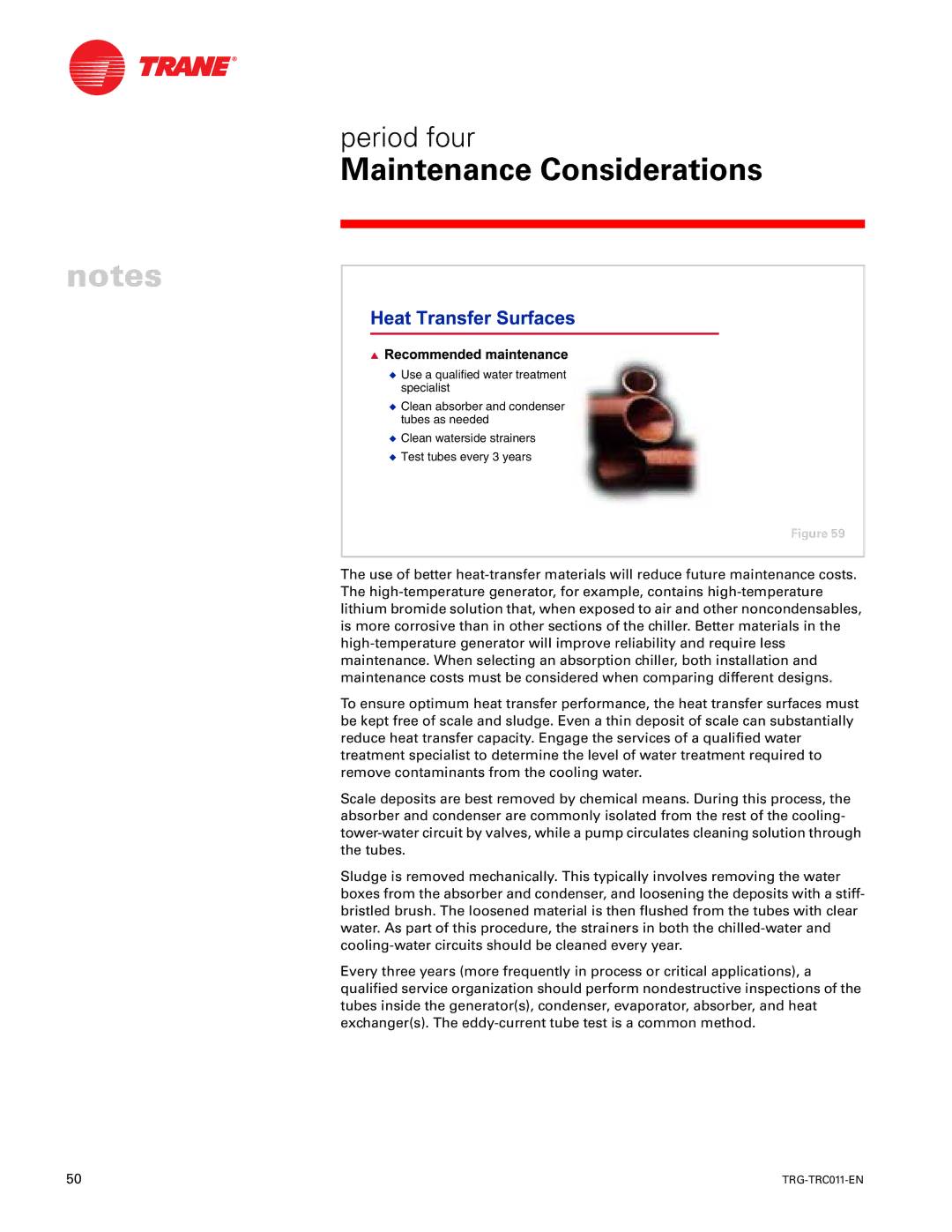
period four
Maintenance Considerations
notes
▲
◆Use a qualified water treatment specialist
◆Clean absorber and condenser tubes as needed
◆Clean waterside strainers
◆Test tubes every 3 years
Figure 59
The use of better
To ensure optimum heat transfer performance, the heat transfer surfaces must be kept free of scale and sludge. Even a thin deposit of scale can substantially reduce heat transfer capacity. Engage the services of a qualified water treatment specialist to determine the level of water treatment required to remove contaminants from the cooling water.
Scale deposits are best removed by chemical means. During this process, the absorber and condenser are commonly isolated from the rest of the cooling-
Sludge is removed mechanically. This typically involves removing the water boxes from the absorber and condenser, and loosening the deposits with a stiff- bristled brush. The loosened material is then flushed from the tubes with clear water. As part of this procedure, the strainers in both the
Every three years (more frequently in process or critical applications), a qualified service organization should perform nondestructive inspections of the tubes inside the generator(s), condenser, evaporator, absorber, and heat exchanger(s). The
50 |
|
